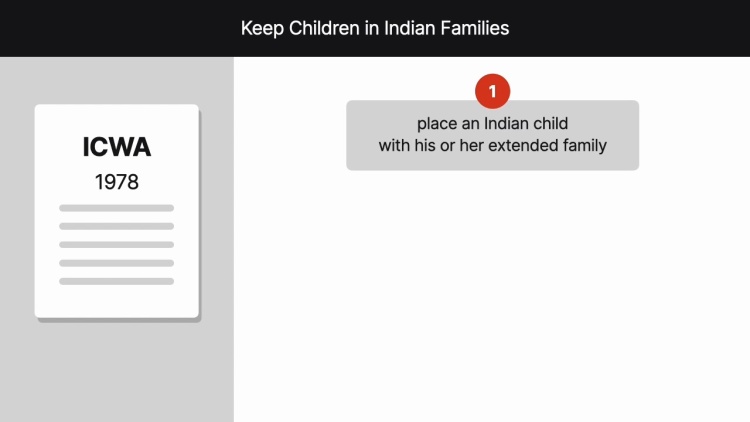Brackeen v. Haaland
United States Court of Appeals for the Fifth Circuit
994 F.3d 249 (2021)
- Written by Liz Nakamura, JD
Facts
[Editor’s Note: The 2022 supplement to the casebook American Indian Law: Native Nations and the Federal System (Rebecca Tsosie & Dylan R. Hedden-Nicely eds., 7th ed. Supp. 2022) erroneously gives the citation for this case as “94 F.3d 249.” The correct citation is “994 F.3d 249 (2021).”] [Editor’s Note: In compliance with the casebook excerpt, the discussion in this brief is strictly limited to the equal-protection challenge raised against the Indian Child Welfare Act’s definition of “Indian child.” The myriad other issues raised in Brackeen v. Haaland are omitted.] The Indian Child Welfare Act (ICWA) governs custody proceedings involving Indian children. Under ICWA, an Indian child is defined as a child who is a member of a federally recognized Indian tribe or who is eligible for membership in an Indian tribe. The State of Texas, the State of Louisiana, and the State of Indiana, along with a group of non-Indians who each attempted to adopt or foster an Indian child (collectively, the ICWA challengers) (plaintiffs) sued the United States (defendant), arguing that ICWA was unconstitutional on various grounds. Five Indian tribes were subsequently permitted to intervene. Specifically, and in relevant part, the ICWA challengers argued that ICWA’s definition of “Indian child” violated the Equal Protection Clause because it was an impermissible race-based classification. The district court agreed and granted the ICWA challengers summary judgment. The United States appealed to the Fifth Circuit.
Rule of Law
Issue
Holding and Reasoning (Per curiam)
What to do next…
Here's why 899,000 law students have relied on our case briefs:
- Written by law professors and practitioners, not other law students. 47,000 briefs, keyed to 994 casebooks. Top-notch customer support.
- The right amount of information, includes the facts, issues, rule of law, holding and reasoning, and any concurrences and dissents.
- Access in your classes, works on your mobile and tablet. Massive library of related video lessons and high quality multiple-choice questions.
- Easy to use, uniform format for every case brief. Written in plain English, not in legalese. Our briefs summarize and simplify; they don’t just repeat the court’s language.





